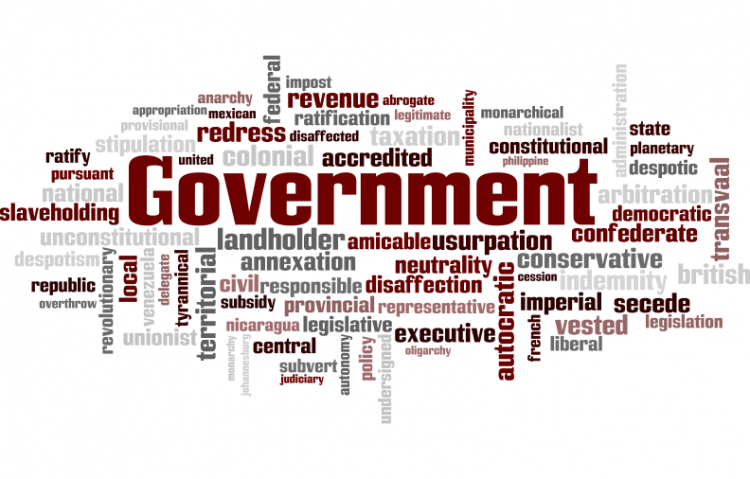
- Target:
- Senator Rubio
- Region:
- United States of America
Dear Senator Rubio: Blind business owners who provide food services to government workers on a daily basis in Florida and around the country are hurting as a result of the COVID-19 virus. We desperately need your help or we stand to lose everything. Please read the attached proposal and consider including it in the relief bill the Senate is preparing. Your consideration on behalf of blind Floridian small business owners is greatly appreciated.
Proposals for COVID-19 Relief
Randolph-Sheppard Blind Vendors
The COVID-19 pandemic has had and will continue to have a devastating economic impact on the nearly 2,000 Randolph-Sheppard blind vendors who feed federal, state, and local government employees every day.
The Randolph-Sheppard Act grants priority to blind persons licensed by the State Licensing Agency (SLA) to manage and operate food services in all federal buildings. Most states have companion statutes that extend similar priority to state and local government buildings. On the national level, the program is administered by the U.S. Department of Education, Rehabilitation Services Administration. In states, the agency that provides vocational rehabilitation services to the blind also administers the programs. The blind vendor’s income are the profits generated by food service businesses. These food service businesses generate over $700,000,000 in annual sales with the median income for all blind entrepreneurs being approximately $40,000. The blind entrepreneurs pay a percentage of the profits back to the SLA to fund the overall program. Nationally, the total comes to approximately $15,000,000.
With government offices shutting down and workers being told to telework, the blind vendors have been forced to close their doors or remain open for few customers. Blind vendors who operate in courthouses are shutdown as courts are delaying trials. Several states have started barricading the interstate rest areas where there are approximately 400 blind vendors service vending machines. 500 of the 1,100 rest areas have vending machines serviced by third party vendors who pay a commission to the agency for the blind to help fund the overall program. Prison visitation areas are some of the more profitable vending facilities as family members visit their loved ones in prison and buy food items from vending machines. However, prison administrators are eliminating all visitations in an effort to prevent the spread of the virus inside. This means no income for the blind vendors servicing those sites. Virtually all of the two thousand blind vendors are being negatively impacted, as is their ability to fund their program. There is a ripple effect to the loss of income. The blind vendors’ income will be removed from the local economies; as states lose the fees paid by the blind entrepreneurs, they will also not be able to buy new equipment or pay to have current equipment maintained. This hurts the private sector in that the vending machine manufacturers won’t be selling vending machines, and the private repair techs will be without much, if not all, of their business. Some state employees will be furloughed since many of their salaries are paid with these set-aside fees.
The total financial impact due to the COVID-19 virus is difficult to predict. This proposal is based upon the assumption that total profit for the blind entrepreneurs will drop by 65% over the next 4-month period. This is a total projected loss in income to the blind of approximately $30,000,000. They will be paying approximately $5,000,000 less in set-aside fees to the states.
In addition, the states could lose another $18,000,000 in third party vending from the interstate rest areas and other government sites. The estimated total loss, therefore, is approximately $56,000,000. In reality, the loss will be much more and is expected to extend beyond 4 months. If we estimate the impact to last for 6 months for example, the impact is $84,000,000.
It is being proposed that a one-time allocation of $35,000,000 be appropriated to the U.S. Department of Education to provide relief for these blind vendors. The Department shall allocate these funds to the State Licensing Agencies based on the number of Vendor Person Years on September 30, 2019, as reported on the annual RSA-15 Report. Pursuant to the requirements of 34 C.F.R. 395.14, the SLA, with the active participation of the Committee of Blind Vendors, shall establish a mechanism whereby relief will be provided to the affected blind vendors. Any funds remaining after the blind entrepreneurs have recouped their losses may be used by the SLA for the same purposes as set aside dollars as outlined in 34 C.F.R. 395.9. In order to ensure that the Blind play a meaningful role in the decision on how these funds are to be utilized, “active participation” is defined here, as in many state regulations, as “an ongoing process of negotiations between the State Licensing Agency and the Committee to achieve joint planning and approval of program policies, standards, and procedures.” It is important that this language be included in any bill.
The main purpose of any relief aid is to help the hard-working blind Americans who run these food service businesses. They don’t make that much money; and to be without an income for months will bankrupt many and force them out of business. They have house payments, car payments, and kids in school. Without aid, they will potentially lose everything. Most Randolph-Sheppard entrepreneurs earn less than $40,000. They cannot afford to sustain themselves for a long period of time with significantly reduced incomes. For this reason, relief is essential.
You can further help this campaign by sponsoring it
The Relief For Florida Blind Business Owners petition to Senator Rubio was written by Sead Bekric and is in the category Government at GoPetition.